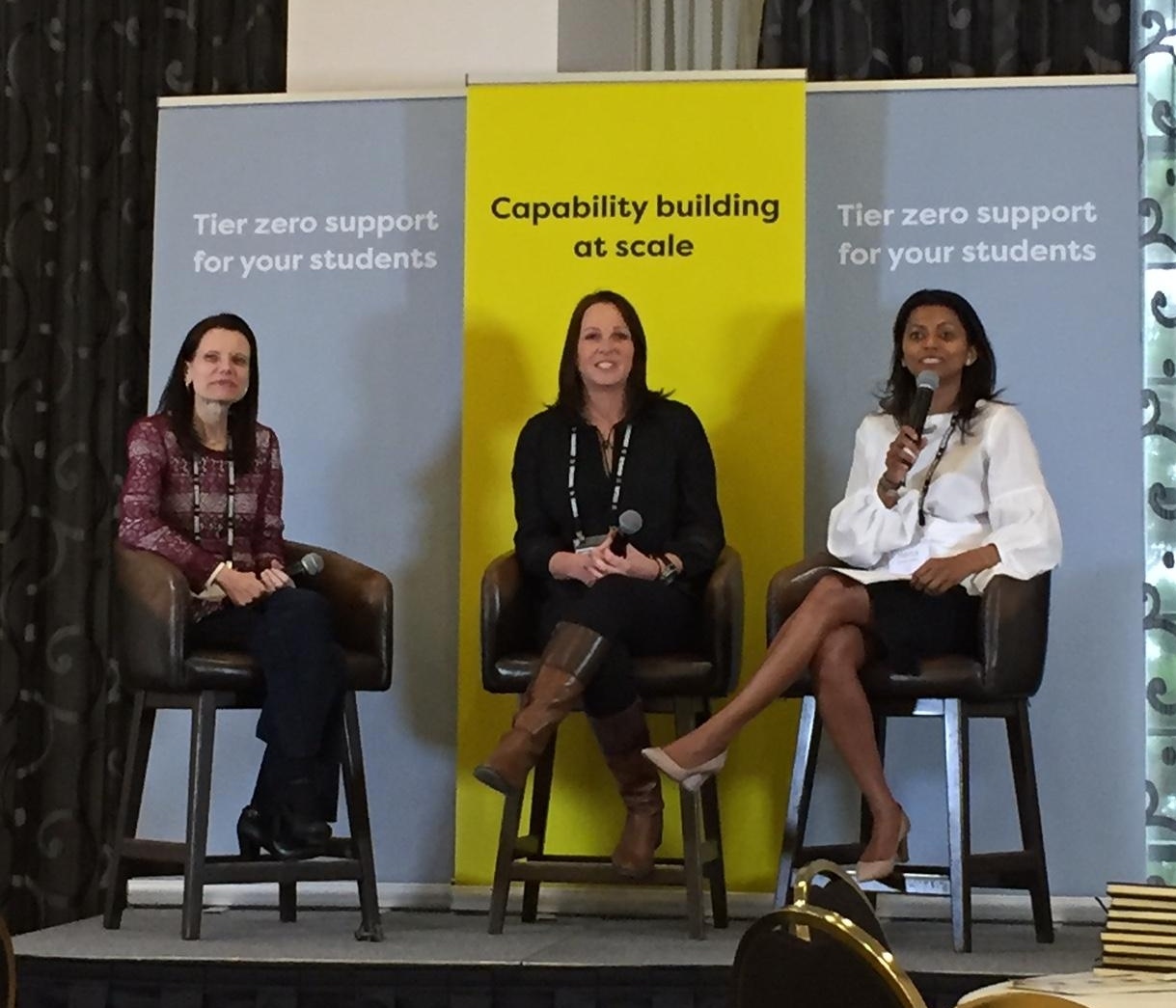“Never lose a holy curiosity,” said Einstein. With something as critical as a student's education, we are always asked about our operations, processes, and our subject-specialists. So we popped the hood on the engine that is Studiosity, during an on-stage Q&A session at the STARS Conference.
 Helga Fischer (subject-specialist and mentor), Dr Lesley Halliday (head of Academic Services), Héma Prakash (head of Partnerships), at the STARS Conference, Adelaide 2017
Helga Fischer (subject-specialist and mentor), Dr Lesley Halliday (head of Academic Services), Héma Prakash (head of Partnerships), at the STARS Conference, Adelaide 2017
1. “You’re not a university, how can we trust your standards align with ours?”
Whether our Academic Integrity Policy, Code of Conduct, Education Policies, onboarding and recruitment, it's all robust and transparent because academic integrity underpins everything we deliver. Plus, our Quality Assurance team monitors every student session, and our Academic Advisory Board are our guiding body to oversee best practice.
“We apply a lot of the same standards to our company that universities apply. To employ the ‘right’ people, we also have strict qualifications and experience criteria they have to meet to ensure every student interaction meets the high standards we have set.” - Dr Lesley Halliday
2. “How does Studiosity fit into our existing support system?”
We know that all our partner institutions have amazing academic support centres on campus, run by highly qualified academic support staff. Yet, Widening Participation, more international students, and mobile delivery means that 40,000 undergraduates need to be supported - and expect to be. That's where we help - Tier Zero means capturing students' support needs immediately, efficiently, and at scale, and where needed, escalating any students to specialist academic support teams at the university for next-level help.
“Every student should be able to get help when they need it. We enable universities to scale up their personalised academic support system to suit the needs of more diverse student groups. It’s all part of a better student experience.” - Dr Lesley Halliday
Dr Lesley Halliday, grilled by the audience, STARS 2017
3. “Where are your Subject Specialists located?”
They are mostly located in Australia (40%), New Zealand (30%), then Canada, UK and South Africa.
We have extremely high recruitment and onboarding standards, so when the subject-specialists pass these stringent checks, geography doesn’t dictate competency. Plus - as a 24/7 service - global diversity ensures students get timely help.
4. “How are your Subject Specialists on-boarded?”
The minimum requirement is a bachelor degree. Many of our Subject Specialists have postgraduate qualifications as well, many have PhDs. Applicants must have education experience, and pass a rigorous screening process of knowledge testing, communication testing, and suitability. They must be able to demonstrate their ability to provide clear, usable, and feed-forward help to students, before they move along in the recruitment process.
All Subject Specialists are then trained and tested on our Academic Integrity and Education Policies, constructivist learning methodology, and our Code of Conduct. For the first six weeks they are on probation and only when the Quality Assurance team are satisfied that they are consistently meeting our high standards are they able to enter our network.
5. “What kind of reporting can you provide?”
The service is implemented into your Learning Management System, so you can collect data on all aspects of the interaction - like subject, course, student number, time spent, and more. Each of our partners has individual requirements for what data they want to see from us to meet unique institutional goals, and usually pair this with institutional and student data to prove trends in academic performance, satisfaction, retention, and international student support.
6. “How do you monitor online sessions?”
Every interaction is overseen by a dedicated manager in our Quality Assurance team. They monitor the quality and consistency of every interaction through a consistent lens, made up of our Education Policies, Integrity Policy, and Code of Conduct.
Students also provide feedback and can rate every session (our Net Promoter Score is 64, against a global benchmark of 37!)
The Students Transitions Achievement Retention & Success Conference (STARS) brings student support and learning experts together every year, to discuss current research, good practice, emerging initiatives and leading edge ideas that are aimed at enhancing students’ tertiary learning experiences.






